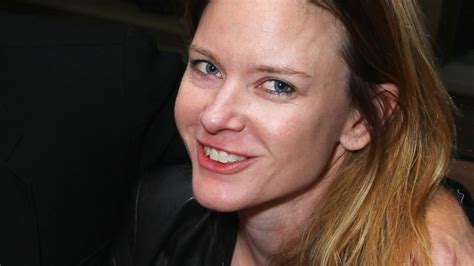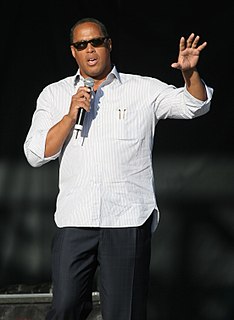A Quote by Ashley Judd
Patriarchy is not men. Patriarchy is a system in which both women and men participate. It privileges, inter alia, the interests of boys and men over the bodily integrity, autonomy, and dignity of girls and women. It is subtle, insidious, and never more dangerous than when women passionately deny that they themselves are engaging in it.
Related Quotes
In the beginning no power differential existed between male and female. God empowered both with full rights and responsibility to rule outward over all creation, not over each other. As we know all too well, the fall changed everything, precipitating male rule over women and also the rule of some men over other men, a.k.a., patriarchy. Within patriarchy, women no longer derive their value from their Creator, but from men - father, husband, and sons. Within patriarchy, a woman's value is gauged by counting her sons.
My book in a nutshell is about the deleterious effects of patriarchy down through the ages for women and for men and how the Bible dismantles this fallen social system. I'm completely persuaded that patriarchy is not the Bible's message, but that it runs counter to God's vision for humanity. It produces tension and disunity between men and women that run contrary to God's vision for his world.
... the socialization of boys regarding masculinity is often at the expense of women. I came to realize that we don't raise boys to be men, we raise them not be women (or gay men). We teach boys that girls and women are "less than" and that leads to violence by some and silence by many. It's important for men to stand up to not only stop men's violence against women but, to teach young men a broader definition of masculinity that includes being empathetic, loving and non-violent.
I soon began to sense a fundamental perceptual difficulty among male scholars (and some female ones) for which 'sexism' is too facile a term. It is really an intellectual defect, which might be termed 'patrivincialism' or patrochialism': the assumption that women are a subgroup, that men's culture is the 'real' world, that patriarchy is equivalent to culture and culture to patriarchy, that the 'great' or 'liberalizing' periods of history have been the same for women as for men.
My feminism has evolved way beyond self-empowerment and I see feminism as a path to peace on earth. The fundamental imbalance that is behind all of the other social diseases is patriarchy. I do believe. As men and women, together, I really long to feel my society evolve its understanding since we're one of the leaders in the f-word. I want us to grow our idea of feminism collectively and get both men and women involved in undoing patriarchy. It's huge. It's a huge job.
Men create their own gods and thus have some slight understanding that they are self-fabricated. Women are much more susceptible, because they are completely oppressed by men; they take men at their word and believe in the gods that men have made up. The situation of women, their culture, makes them kneel more often before the gods that have been created by men than men themselves do, who know what they've done. To this extent, women will be more fanatical, whether it is for fascism or for totalitarianism.
If women take their bodies seriously and ideally we should then its full expression, in terms of pleasure, maternity, and physical strength, seems to fare better when women control the means of production and reproduction. From this point of view, it is simply not in women's interest to support patriarchy or even a fabled "equality" with men. That women do so is more a sign of powerlessness than of any biologically based "superior" wisdom.
Women have always been more critical of marriage than men. The great mysterious irony of it is - at least it's the stereotype - that women want to get married and men are trying to avoid it. Marriage doesn't benefit women as much as men, and it never has. And women, once they are married, become very critical of marriages in a way that men don't.
Internationally and in foreign markets, movies starring women don't make as much money as movies starring men. And then you can blame filmmakers, especially in comedy, which is my bread and butter, because it's become a bit of a boys' club over the years. With the boys in charge you get these takes on women which are either the girlfriend or the mean wife or the girl who appears in a romantic comedy. You're just getting either men's fantasies about women or what they think is the reality about women instead of men just having a healthy attitude about women.
Formerly, many men dominated women within marriage. Now, despite a much wider acceptance of women as workers, men dominate women anonymously outside the marriage. Patriarchy has not disappeared; it has changed form. In the old form, women were forced to obey an overbearing husband in the privacy of an unjust marriage. In the new form, the working single mother is economically abandoned by her former husband and ignored by a patriarchal society at large.



































